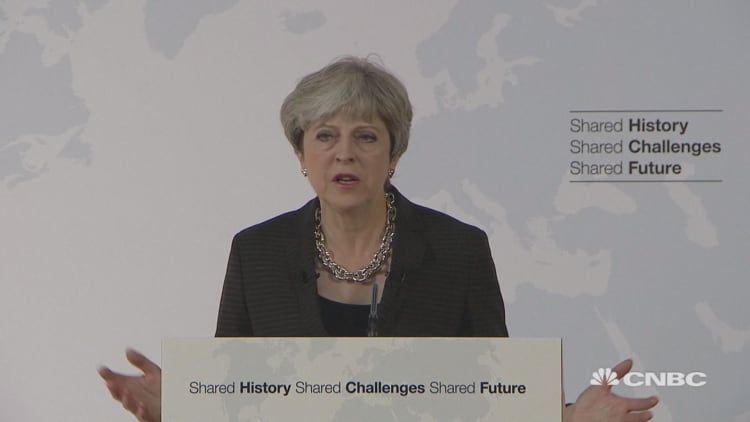
U.K. Prime Minister Theresa May said her government wants a transition phase before her country leaves the EU completely, but failed to provide solid details on what this period would ultimately look like.
Speaking to an audience in Florence, Italy, May said that businesses and citizens will need a period to adapt to a world where the United Kingdom no longer belongs to the EU. One of the key changes will be a new immigration system, she said, which could take two years to implement.
"It will take time to put in place the new immigration system required to re-take control of the U.K.'s borders. So during the implementation period, people will continue to be able to come and live and work in the U.K.; but there will be a registration system – an essential preparation for the new regime. As of today, these considerations point to an implementation period of around two years," May said.
Such a transition period should be agreed as soon as possible and be time-limited, May added.
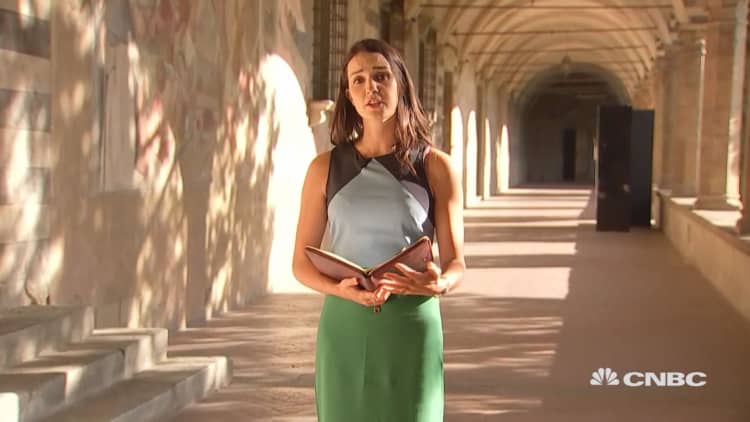
"And at the heart of these arrangements, there should be a clear double lock: A guarantee that there will be a period of implementation giving businesses and people alike the certainty that they will be able to prepare for the change; and a guarantee that this implementation period will be time-limited, giving everyone the certainty that this will not go on for ever," the prime minister stated.
The European Union said at the start of the Brexit negotiations that it is willing to work on a transition period, but during that time EU law will continue to be applied in the U.K. — something that might not please some Brexit voters.
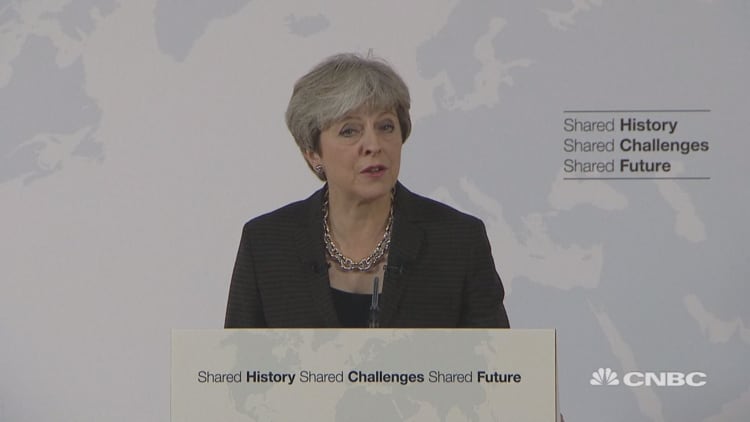
"Markets might find some comfort in the promise that Britain will pay its dues and could de facto stay inside the single market for the two year transitional period, but as expected, there is still no detail on the key issues that could take the negotiations forward in a serious way," Kallum Pickering, senior U.K. economist at Berenberg, told CNBC via email.
"May looks to be keeping herself in the safe zone ahead of her party conference next month," he added.
A 'creative and practical' arrangement
The prime minister said that both sides of the negotiation table should seek a "creative and practical" solution for the country's exit from the European Union.
Such a solution needs to go beyond current arrangements that the EU has with other nations. The U.K.'s future partnership with the EU cannot be like the European Economic Area – where goods, services and people move freely - nor it can be solely based on a trade deal, like the one the bloc has with Canada, she said.
"We can do so much better than this," she said.
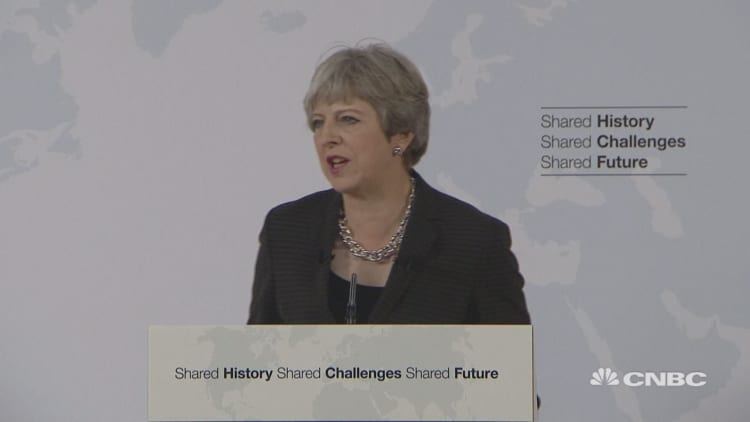
UK will 'honor' its financial commitments
One of the biggest worries for many EU members has been the hole that the U.K. will leave in the European budget once it leaves the bloc on March 29, 2019.
However, May reiterated that London will fully comply with its financial commitments to the bloc, though she didn't specify any figures. Initial calculations from the EU suggested that bill will be 60 billion euros ($71.86 billion), at a minimum.
Sterling falls on disappointment
Sterling fell on Friday afternoon after a report from The Telegraph newspaper suggested that the U.K. could leave the EU before 2019. The currency continued dropping during May's speech to as much as $1.3488. It was trading at $1.3574 before it began to fall.
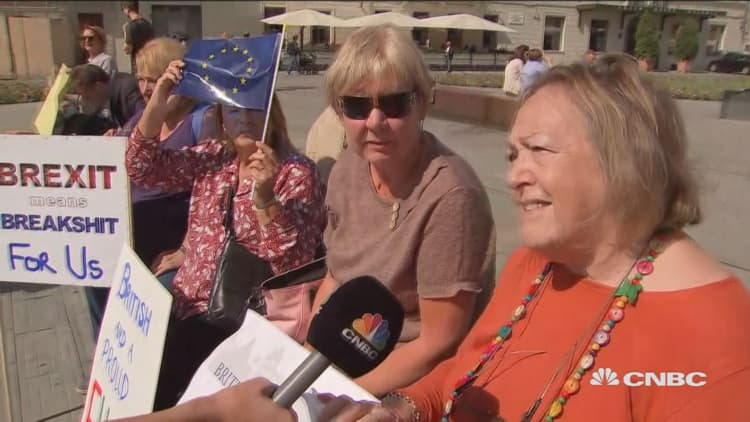
"GBP fell on the back of the Telegraph report on fear that we could be out of the EU without a deal even sooner than thought – though actually this doesn't make sense because the only way we could leave earlier than March 2019 would be if a deal had been struck," Jane Foley, head of forex strategy at Rabobank, told CNBC via email.
"The market fell as May started to speak on disappointment. The market had expected her to offer clarity – what we got were buzz words and rhetoric. That said, GBP is now clawing back these losses," she added.
Sterling recovered slightly to $1.3544 by 4:00 p.m. London time on Friday.


